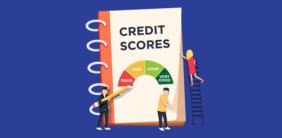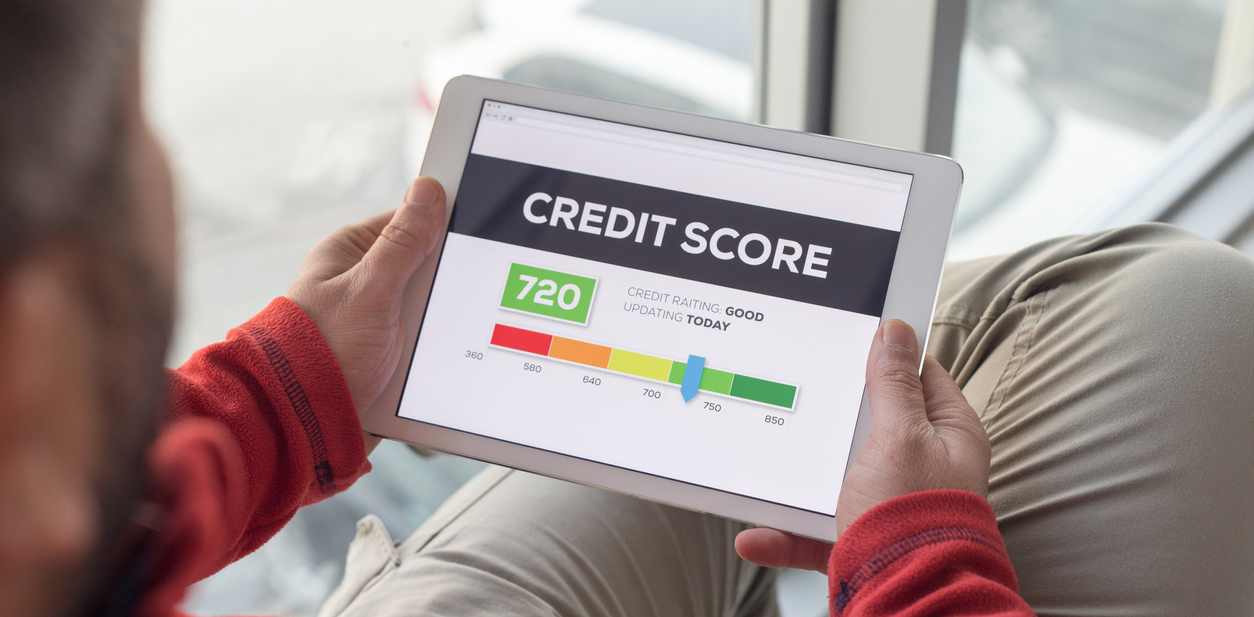Build an Emergency Fund or Pay Off a Car Loan: Here’s What You Should Consider
;)

Can’t decide whether to start an emergency fund or pay off a car loan? Let’s compare three routes.
If you’re reading this, you’re facing a tough financial decision. It’s a common dilemma for auto loan borrowers: Should I save money or pay off my car?
On one side, people need emergency funds to avoid unexpected financial pitfalls. On the other side, debt can restrict your income and restrain your financial independence. Needless to say, we can only save so much money each month. So, is it better to build an emergency fund or pay off a car loan?
While there isn’t a universal answer to this question, there are a few approaches to consider. Before we jump to any conclusions, let’s walk through the fundamentals of emergency funds.
What Is an Emergency Fund?
An emergency fund is a cash reserve that protects you from unexpected costs like car accident repairs and medical bills. Think of it as a “just in case” fund.
The standard recommendation is to keep three to six months’ worth of expenses in your emergency fund — but the exact amount depends on your financial situation and comfort level. At a minimum, you should save up roughly $2,500 to protect against financial hardship, according to a 2019 study.
Think about it from another perspective: If you lost your job and primary source of income, how long would it take you to replace it? For instance, workers in a high-turnover industry might want to consider a larger emergency fund.
To maximize accessibility and passive income, house your emergency fund in a high-yield savings account. It’s better than letting your money sit idly in a checking account.
When should I start building my emergency fund?
When is the ideal time to start building an emergency fund? Yesterday — if not, as soon as possible.
According to a recent report, 61% of Americans wouldn’t be able to afford a sudden $1,000 expense. In other words, 61% of people are one hefty bill away from slipping into a financial hole.
No one expects to be rear-ended on their way to the grocery store. No one expects to get sick or lose their job. No one can foresee the future — but you can be financially prepared to face expensive surprises. That’s why emergency funds are must-have personal finance staples.
How much should I save?
It’s hard to put a dollar amount on how much you should be saving. It’s easier to quantify as a percentage because everyone’s financial situation is unique. The standard recommendation is 20% but there are two caveats:
- Some savings are better than no savings.
- 20% isn’t a fixed cap — you can save more.
It’s easier to look at savings in terms of a savings rate. Your savings rate is the percentage of your monthly income that you don’t spend. For example, if your after-tax monthly income is $2,000 and your monthly savings are $500, your savings rate is 25%.
The higher your savings rate, the sooner you’ll be able to build an emergency fund, pay off debt, and invest in your future.
Now that you understand the basics of an emergency fund and saving, let’s return to our initial question.
Should I Pay Off My Car Loan or Build an Emergency Fund?
There isn’t a one-size-fits-all answer to this question because personal finance is a subjective topic. What works for one person might not suit someone else. That said, we’ll make a case for three approaches.
Why you should build an emergency fund first
Like buckling your seatbelt, the “safety first” approach could be the right choice for you. If your income isn’t stable or predictable, it would make more sense to prepare for unexpected costs and life events. In other words, if you happened to lose your job — and primary source of income — you’ll want a safety net.
Lowering your outstanding debt can save more money in the long run, but it’s still money out the door. An unexpected cost — such as a car accident or medical procedure — could put you in a financial bind if you don’t have an emergency fund. If you don’t have the liquidity to cover it, you might even have to take out more debt on a credit card.
That’s not ideal. Credit card debt is often much more expensive if you fall behind on payments.
If you don’t have any savings whatsoever, you should prioritize establishing an emergency fund so you don’t compound the issue. On top of that, auto rates have been particularly low; if you recently secured a low interest rate, debt payments are less likely to inhibit your cash flow.
Why you should pay off your car loan first
The primary advantage is saving money. Paying off your car loan ahead of schedule will reduce your total interest. Even though savings accounts yield passive income in the form of interest, your debt is likely more expensive.
For instance, let’s assume you have $10,000. You can either pay off your $10,000 car loan or start an emergency fund. Your auto loan’s APR is 7%, while your savings account offers an interest rate of 2%. In one year, you’d pay $700 in loan costs and earn $200 from your savings account. In this scenario, you’d save $500 if you elected to pay off your car loan instead of starting an emergency fund.
If you have a high-interest rate, you could bridge that gap by refinancing your existing auto loan. The average interest rate reduction for every refinanced auto loan was 5.5% in 2020.
That said, before you pay off your car loan early, make sure there aren’t any consequences.
Review your loan agreement — or speak with your lender — to see if you’ll incur a prepayment penalty, which is a fee for paying off debt earlier than expected. As you can imagine, this can nullify the benefits of reduced interest. Prepayment penalties are not common, though you’ll see them more often in subprime auto loans.
Why you should do both
Why not both? If you’re torn between paying off your auto loan and establishing an emergency fund, nothing is stopping you from pursuing both. This choice could ease your mind the most since you’re tackling two financial hurdles at once. You mitigate the risk of an unexpected expense while simultaneously lowering your total loan interest.
For example, if you save an extra $500 per month, you could split that down the middle and apply an extra payment of $250 to your auto loan balance and put $250 in your emergency fund. It also doesn’t have to be an even split — choose the allocation that makes you most comfortable.
Now let’s assume you have a $10,000 auto loan. The loan has an interest rate of 4% and a loan term of 48 months. If you paid off an extra $250 each month, you’d save $453.00 in interest and pay off your loan 2 years and 2 months sooner.
How To Pay Off Your Car Loan Faster
Okay, those are the numbers, but how can you maximize your savings and pay off your car loan faster? If you’re determined, there are a few routes you can take.
Budget to reduce overspending
Budgeting isn’t the most exciting activity, but it can help you identify overspending and sources of financial strain. In turn, you can nix bad habits and save more money — which you can use to pay off your auto loan sooner.
There are a bunch of budgeting apps out there, like Mint and YNAB. You can also create your own simple budget in a spreadsheet. It doesn’t need to be intricate and fancy — you just need to be able to locate unnecessary purchases. Categorize your purchases as “wants” and “needs,” and then cut back on a few wants.
If you use a credit card for most monthly payments, your credit card issuer may have done much of the work for you already. Some credit card issuers organize and label your transaction activity, which you can usually download into a spreadsheet.
Even small expenses can add up, like coffee or monthly subscriptions that you hardly use anymore.
Develop a second source of income
You don’t need to devise a revolutionary idea or build a time-consuming side business. But there are a lot of ways to earn extra money. You could use a talent like writing or graphic design to complement your primary income. You could find odd jobs on TaskRabbit. You could sell hand-crafted jewelry on Etsy. You could sell old stuff on eBay.
A little extra cash can go a long way.
Let’s revisit our auto loan example from earlier. Imagine if you cut your expenses by $100 and made an additional $100 each month, bringing your extra savings to $700. If you stick with the even-split technique, you’d now have an additional $350 for debt repayments and another $350 for your emergency savings. You’ll be debt-free even sooner.
Lower your interest rate
Refinancing your car loan can lower your interest rate and, in turn, your total interest payments. That’s less money coming out of your pockets each month and overall. The average annual savings by refinancing auto loans was $989.72 in 2020, according to RateGenius data, and 42% of customers saved over $1,000 a year.
When’s a good time to refinance? When interest rates are lower than when you took out your current loan — or if your financial profile has improved.
For instance, if you had bad credit or minimal credit history, a subprime loan may have been your only option. If your credit has improved, you could potentially refinance your auto loan to get a lower interest rate and save more money over the life of the loan.
One Last Thought to Help You Decide
Saving money and repaying debt — both are integral to financial stability, but prioritizing one over the other is a conundrum.
Both options provide a form of psychological relief, so you could take the route that relieves the most financial stress. If your income is unpredictable or your job status is in flux, an emergency fund can provide some peace of mind. If you’re feeling overwhelmed by debt — especially if you have other obligations like student loans or a mortgage — paying off your loans first can alleviate the emotional burden.
If you simply can’t decide, split your savings in half; build emergency savings and pay down debt at the same time. You’ll reap partial benefits of both approaches.











